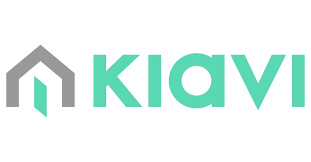
Posted: February 27, 2021 | By: LendVer Staff –
There is a lot of confusion on the internet surrounding what a private money loan actually is. People often ask whether a private money loan is different than a hard money loan, or if a private money loan is the same as a bridge loan? These are questions that potential borrowers considering an easier loan for their commercial real estate or investment residential property need answers to. Guess what? A hard money loan and a bridge loan are both types of private money loans, meaning they are all the same thing. The differences among private money loans stem from the varying programs of the myriad lenders offering them, as well as the nomenclature used to identify each lender’s program (i.e. bridge, hard-money, etc.). A private money loan is any loan provided by a private, non-institution, non-government organization; think debt fund, hedge fund, or a family office. These private investment companies or groups are able to provide loans without much of the red-tape that more regulated organizations encounter, and therefore the loan process is much faster and easier. For example, our recommended private money lender Kiavi, can fund investment residential real estate loans up to $3 million in as little as 5 days.
Types of Private Money Loans
Private money lenders are abundant, they lend on anything from investment residential property to land. Proceeds are often used to renovate a property, fix a property up to sell it or hold it for rental income, to bail a borrower out of a distressed situation such as a bankruptcy or foreclosure, or a variety of other scenarios. One of the main benefits to private money loans is that they are usually asset based; loans provided by underwriting the value and marketability of an asset (in this case commercial or investment residential real estate). A Private lender’s due diligence usually includes evaluating how much the property it is considering lending against is worth, and how much the lender could quickly sell it for (this is called liquidation value) in the event you default on your loan. Where a full documentation or stated income lender might fund up to 80% or more of a property’s value, an asset based lender is usually restricted to a lower leverage point of 65% LTV or less (although Kiavi will consider funding up to 90% LTV).
A big benefit to private money lenders is that because they are primarily asset based, they do not require a lot of documentation from you. Tax returns and other personal and business financial information is usually not required. An appraisal report, your investment or business experience and an exit strategy will be the most important things a private money lender will consider. An exit strategy is just what it sounds like, the means by which the lender will be paid off. In the event the lender is financing the renovation of a property, then the sale of that property is often the primary exit strategy. In the case of a renovation loan, a private money lender may also fund up to 100% of the renovation budget to ensure that the property is completed and can be sold. A private money loan often serves as a bridge for a borrower from a less favorable situation to a more favorable one. For example, if a borrower’s credit has been damaged due to a bankruptcy, he’ll need a private money loan to give him time to improve it so he can refinance into a permanent loan.
Private Money Terms
Because private money loans require less documentation they tend to have more risk for the lender, so the terms will not be as favorable as a borrower will get with stated income loans like those offered by South End Capital. Private money interest rates can range anywhere from 7% to 13%+, loan terms are usually short from 6 to 24 months, origination points of 1% to 6% of the loan amount are not uncommon either. Your situation, your credit score and your collateral will dictate the terms you will receive from a private lender. Borrowers with great credit and no issues will often utilize a private loan strictly because of its speed and simplicity.
Expect private money loans for borrowers with low credit, distressed situations or unique property to be more expensive and for the LTVs to be lower. South End Capital provides these types of private money loans over from $25,000 to $50 million, but its rates range from 6% to 13% and its maximum LTV is 75%.
Conclusion
Whether you have great credit or low credit, want to fix and flip a property or need to get out of bankruptcy, private money loans can be a valuable option for you. The important thing when approaching a private money lender is to have sufficient collateral available and a game plan for paying the lender back. One of the benefits of partnering with the right private money lender and using it for multiple loans, is that the cost of borrowing will go down over time and closing time-frames will shorten.
Need a private money loan? Contact our recommended lenders Kiavi or South End Capital.

